Good People for the Resistance is a twice-monthly interview with people who give me hope. Today, meet Billy Shore, co-founder and executive chairman of Share our Strength, a D.C.-based organization that is well on its way to eliminating childhood hunger in the U.S.
Through the use of creative food events and the support of the nation’s top chefs, food industry executives, and Hollywood celebrities, Shore has raised hundreds of millions of dollars to feed millions of hungry kids in their schools and homes. How’s he do it? Largely by helping food insecure families connect with federal food programs that already exist, but which for a variety of reasons, they are not accessing.
Why do the Shake Shack, Williams Sonoma, Kevin Bacon, the Big Lebowski, and P!nk support Billy and Share Our Strength? Read On …
Q: I’ve followed Share Our Strength for years, and if I had to summarize what you’re famous for, I’d say, “Billy Shore was the first to figure out how to get celebrity chefs to cook for people at special events, and in doing so, raised tens of millions of dollars to feed hungry kids.” Am I right?
Yes. For our first 20 years, Share Our Strength was best known for our entrepreneurship; we figured out a way for a charitable organization to generate revenue. We realized that to solve big problems like hunger and poverty, it was not sufficient to redistribute wealth (which is what most charities do), we have to create wealth. Chefs helped us create wealth.
Q: Describe one of your favorite chef-centric, wealth-creating events.
I love the smaller dinners where chefs cook tableside, with different menus for each table. The events are intimate enough that guests know what Share Our Strength is about and why they are there, and by meeting the chefs they get a stronger connection to the champions who are really making a difference in so many kids’ lives.
Q: Today, chefs clamor to do events with you; it’s almost become a rite of passage for an up-and-coming chef to donate their time and talent. How’d you make this happen?
My sister and I started Share Our Strength in 1984 with $2,000. Using my Daisy Wheel printer, I sent a letter to 1,000 chefs, “influencers” I thought would bring others along. Our idea was that there were chefs in the community who understood the connection between what they did and the issue of hunger. We got zero response – we didn’t hear back from a single chef. So I sent 1,000 more letters. Then I got one response. It was from one of the country’s leading chefs, Alice Waters of Chez Panisse. She sent $500 and a note that said, “what else can I do?” I told her she could sign the next batch of letters, because no one was answering mine. That was how we started to get all of the hot chefs. Then we just kept sending letters and building concentric circles in the chef community.
Q: One of the big topics you introduced to philanthropy is asking people like the chefs to “share their strength.” What’s that mean?
Everybody has something to give. It may be a talent. We asked chefs to share their strength by cooking. They also help teach low income moms how to cook healthy food, affordably. Years ago we asked well-known writers, like Richard Russo and Julia Alvarez, to share their strength by doing readings and donating original works such as essays on food, which we published in collections and sold. The issue is to identify ways people can contribute to the community simply by doing what they do. Writing checks is still important, but this is, too.
Q: How do you connect kids to food programs?
We identify why families aren’t accessing food programs, then work to decrease these barriers. For example, kids tell us they don’t want to be seen as someone who gets breakfast at school, which labels them as being poor. So we work on figuring out how to eliminate that stigma, perhaps by moving breakfast out of the cafeteria and into the classroom, and making it available to everyone. Bristol, VA has a lot of poor kids, and some middle income. They all don’t qualify for free lunch. Now, each kid has a pin code they type in when they go through the cafeteria line. If the kid is low income, the government reimburses the school. If the kid is middle income, the bill goes to their parents. No one in that cafeteria line knows if the child is getting a free lunch or paying for it.
Q: A few years ago, Share Our Strength decided to focus on a single goal: Eliminating childhood hunger in the U.S. That’s when you launched the No Kid Hungry campaign. Why this laser focus?
There’s a writer named Jonathan Kozol who says that you should pick battles that are big enough to matter, but small enough to win. We realized that childhood hunger in the U.S. is a solvable problem. When it comes to hungry kids we know it’s not lack of food – there is plenty of food in this country. Rather, it’s because we have not done a good job connecting hungry kids to programs they are eligible for. Programs like school breakfasts were being underutilized by 50%!
I just got back from the El Monte school district in L.A. There are 7,000 kids in the district. 2,500 are homeless, mostly Hispanic and Asian. Many of their parents are immigrants. In the past, this would have been a prescription for these kids to be hungry. But they are not. They get school breakfast, lunch, and an afternoon snack, which some turn into dinner. This is the first time ever this has been done there. The meals are all 100% federally reimbursed. We are breaking the cycle of hunger.
Q: How has your work changed over the last 3 years, with an occupant of the White House who seems to be hostile towards poor children?
Well, it certainly helps to have a friend in the Administration, which we had with Obama and his Secretary of Agriculture Tom Vilsack, who used his bully pulpit to advance our work. We lack that now. Under Trump, we spend a lot of time on defensive battles, making sure school meals are protected.
Truthfully though, this Administration’s incompetence has worked in our favor. They don’t get done a lot of what they say they will do. The Administration’s threats to school meals and the SNAP program (food stamps) are sometimes intended as comments designed for political purposes, and not necessarily something Congress will pass, certainly not the House. Also, it’s important to know that almost all of what we do is at state level. It matters who the Governor is, and they just don’t seem to have the appetite to hurt people that Trump has. We work well with GOP and liberal Governors, which is encouraging.
Q: If Trump invited you to meet with him at the White House, would you go?
Yes – if I had the opportunity to tell him his incompetence and corruption are damaging our country, I would tell him that. And I would tell him why these food programs work. But I am skeptical that he would listen. I would not go as one of his props.
Q: Would you shake Trump’s hand?
Yes. But only If I had a bottle of Purell.
Q: Tell me some Good News.
I am hopeful that we are going to be successful in ending childhood hunger within the next 10 years. This will be an historic achievement, one that will give people confidence to climb the next higher hill, to address another symptom of poverty. We’ll be able to do this because we have bipartisan support. And by the time we do it, we will have a series of best practices that we can apply to other problems. There will be an enormous ripple effect.
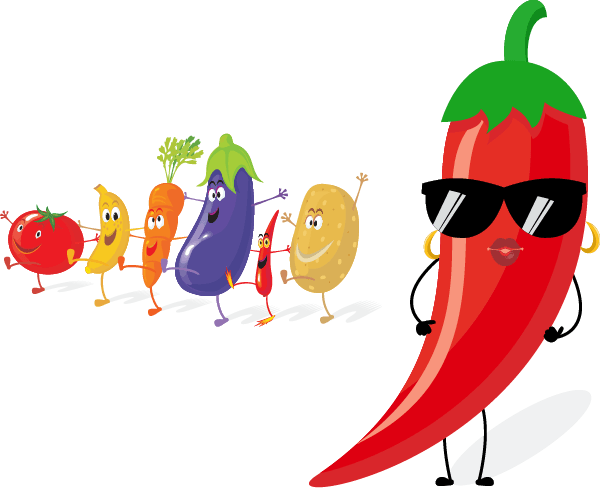

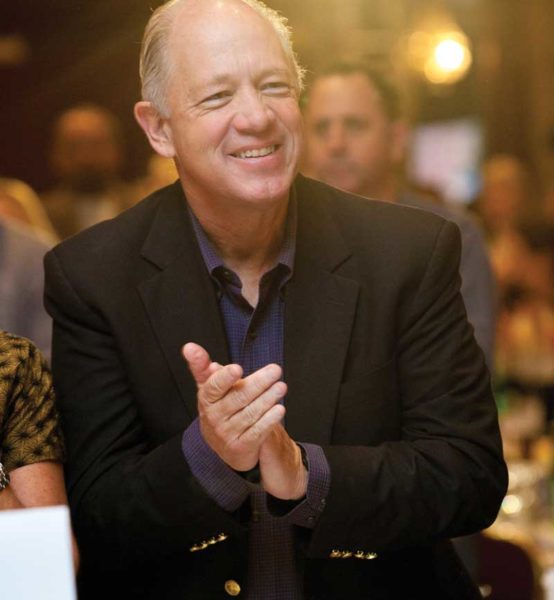
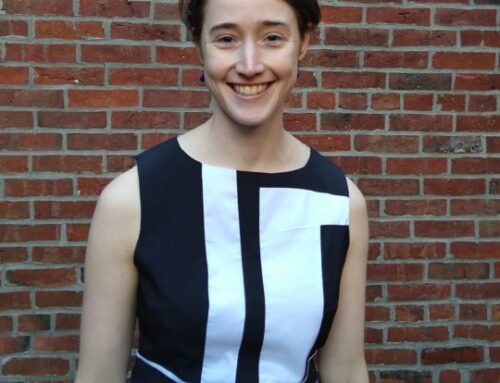
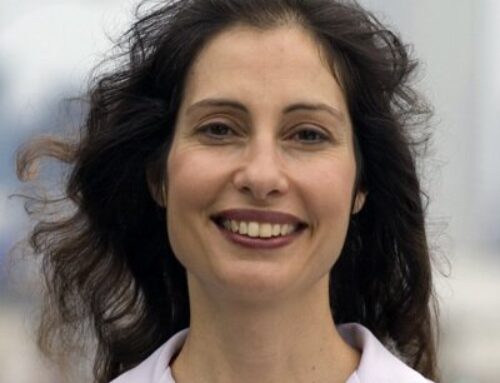
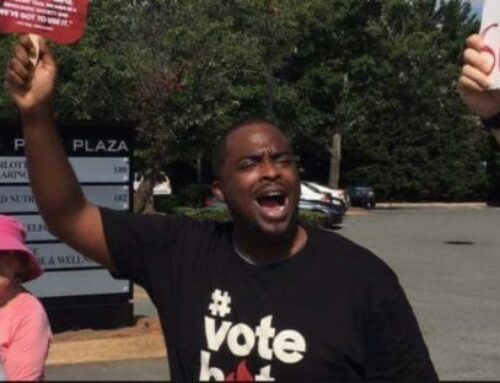
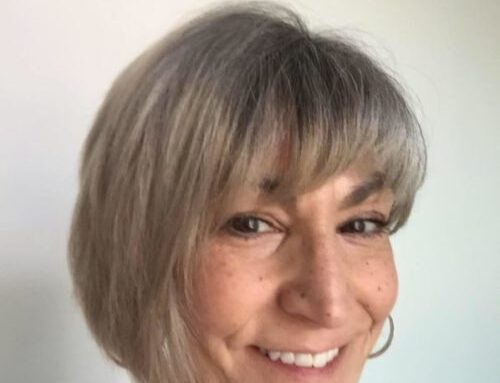
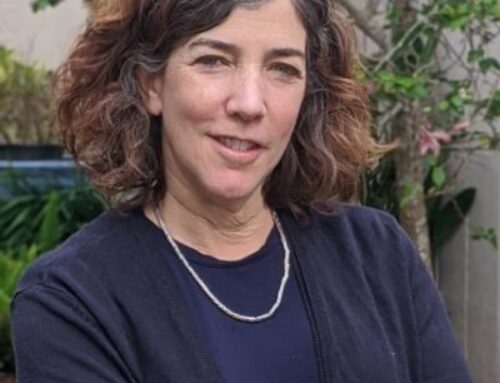
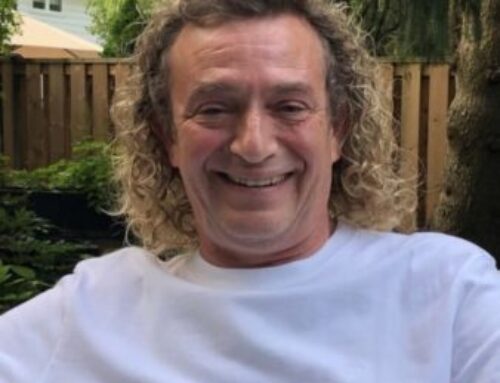


Leave A Comment